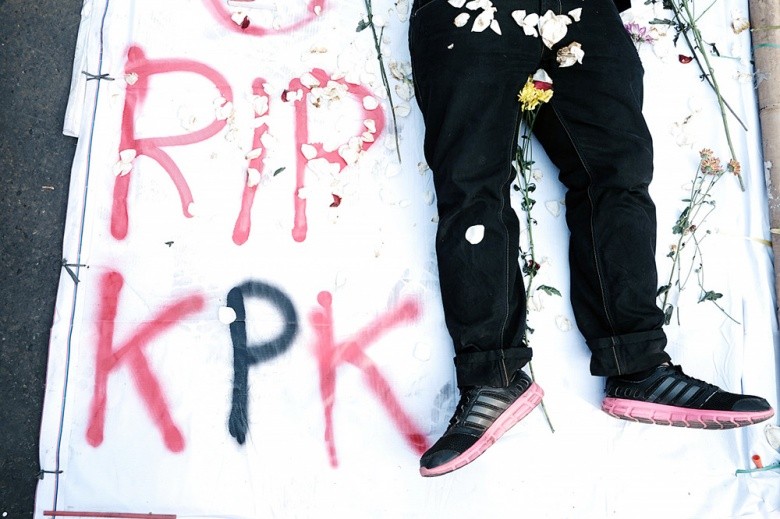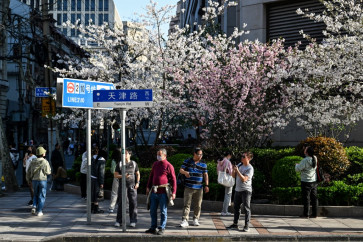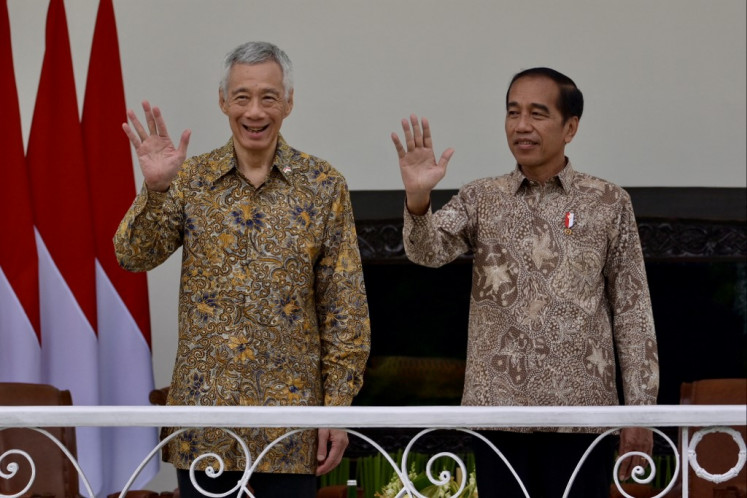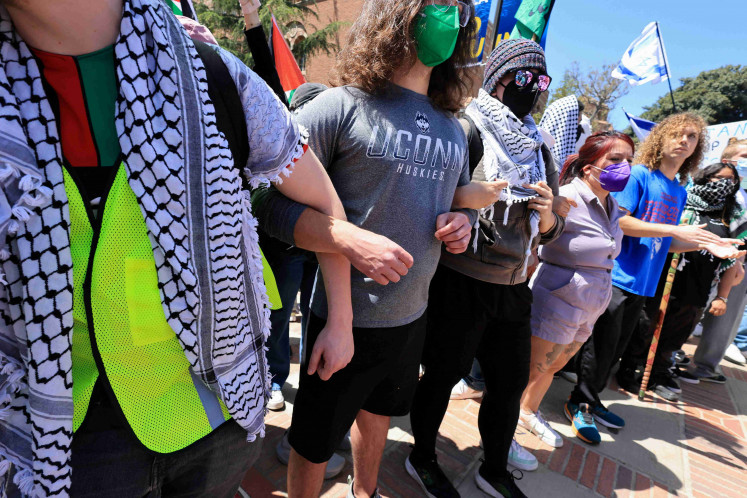2021 make-or-break year for KPK in restoring trust
Experts were quick to connect the agency's lackluster performance with the new KPK Law, which drew public outcry even before its deliberation by the House of Representatives and the government in late 2019.
Change Size

T
he Corruption Eradication Commission (KPK) has resolved to pick up its performance and rebuild public trust this year, but experts have doubts over its independence, as a restrictive new law, coupled with controversial new leadership, appeared to have slowly affected the agency last year.
KPK leaders said in a year-end press briefing that the number of graft investigations in 2020 was less impressive than in 2019 and under past leaders.
The agency conducted 111 preliminary investigations and investigated 91 corruption counts last year — some of which are still ongoing. The figures are lower than the 142 preliminary probes and 145 investigations carried out in 2019. The KPK recorded seven successful sting operations this year, down from 21 operations in 2019 and 30 in 2018.
Experts were quick to connect the agency's lackluster performance with the new KPK Law, which drew public outcry even before its deliberation by the House of Representatives and the government in late 2019.
The harm done by the law was evident in the low number of KPK investigations, said Zaenur Rohman from Gadjah Mada University’s Center for Anticorruption Studies (Pukat UGM), attributing the decline to problematic provisions that added more layers of bureaucracy to graft investigations.
Read also: Explainer: How the KPK is losing public trust
This includes the formation of a new supervisory council that has the power to approve or reject arrests, searches and wiretapping of people of interest. Previously, KPK investigators needed only the approval of the commission’s five leaders. Other controversial provisions have transformed the KPK from an ad hoc independent body into a state institution and required all KPK employees — including forensic auditors, investigators and prosecutors — to be civil servants.
“We warned that the law could undermine the work of the KPK. Now, the data speaks for itself,” Zaenur said.
"I'm afraid if the KPK keeps showing a lackluster performance in 2021, it will lead to deeper, wider public distrust in the antigraft agency and its ability to investigate corruption. The year 2021 will definitely be a test for the KPK.”
He said the recent arrest of two former ministers, Edhy Prabowo and Juliari Batubara, could be a good start to win back the public’s trust if investigators were able to solve these cases this year.
The new law has led the public to question the antigraft body’s capability to curb corruption, as shown in various opinion polls.
Surveys conducted by Litbang Kompas, the research arm of Kompas daily, found a decrease in the number of respondents who perceived the KPK in a positive light, from 64 percent in January last year to 44 percent in June. A December survey conducted by the Indonesian Survey Institute (LSI), meanwhile, found that 26.9 percent of 2,000 respondents believed that the new law had weakened the KPK, while only 23.3 percent said otherwise.
Read also: Indonesians believe corruption more rampant this year, survey finds
Activist Kurnia Ramadhana from Indonesia Corruption Watch (ICW) said the arrest of the two former Cabinet members did not denote improvement, and the new law would always overshadow the KPK.
“As long as it is still in force, I’d say the KPK will always face stumbling blocks in carrying its tasks,” he said.
Experts believe the controversial leadership of Firli Bahuri, who was found guilty of an ethics violation not long after taking office in December 2019, was another factor in why people are losing faith in the agency.
Firli said the KPK’s performance under his leadership and his predecessor’s, Agus Rahardjo, could not be compared, given that their work last year was mainly affected by the COVID-19 outbreak — something that the agency’s past leaders did not have to deal with.
"We promise to work hard next year [in 2021]. We are obliged to keep combating corruption, even though no one can predict when the outbreak will ease," he said. "And we apologize to the public if they think we have failed in demonstrating maximum efforts in combating corruption."









